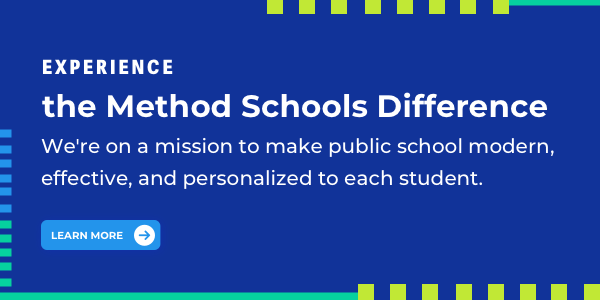Alternative Learning for Student Athletes: What to Expect
Being a student athlete isn’t all fun and games. For high school students who are dedicated to a sport, the traditional classroom can pile on even more stress and hold them back.
Luckily, more parents are realizing how alternative learning can empower student athletes now and set them up for success well into the future.
Still, if you’re a parent who’s considering alternative learning for your student athlete, you’ll want to know what to expect before jumping into online schooling. In this article, we’ve outlined which alternative learning options are improving outcomes for student athletes and what your student can expect from an elite online school.
What Are High School Student Athletes Up Against?
Although there are nearly 8 million students participating in high school athletics, traditional schools aren’t properly built to support student athletes.
Simply put, student athletes don’t have the same schedule or responsibilities of other high school students. Their days are packed to the brim, and traditional high schools just aren’t equipped to help them succeed.
Why?
To start, a high school student athlete needs to take on a typical high school course load in order to graduate. Depending on the program’s structure, that usually means around 5-7 classes per day. In a traditional school, those classes are boxed into stiff blocks of time, usually starting around 7:30-8:30 a.m. and wrapping up around 3:30-4:30 p.m.
Unfortunately, student athletes may have weight lifting before classes start, practice immediately after classes, and games that run well into the evening or night. If the athlete is serious about mastering their sport, they might tack on even more training on their own time. That all puts an unfair burden on students.
Here’s a deeper look at what student athletes can expect to face on a daily basis in a traditional school setting:
- Demanding Travel: When a student athlete’s sport is in season, they have to hit the road for away games. If games go late or if the venue is a long distance away, they’re left racing back to prepare for school the next morning.
- Strict Practice Schedules: Practice is essential to a student athlete’s success in the playing arena. Unfortunately, with traditional classes confined to limited hours, student athletes often have to rush to the practice field after class—bypassing a healthy eating routine or proper mental preparation.
- Additional Conditioning and Training: Athletic competition is all about growing, getting better, and pushing the limits. That means students who want to get better at their sport may spend hours in the weight room, at the gym, on the field, or at the track. With a traditional classroom setting, they’re left carving out this extra time in the early morning or late at night.
- Inconsistent Sleep Patterns: Late games and early classes can quickly wear down a student athlete’s sleep schedule. In fact, studies show that student athletes aren’t getting enough sleep. That can disrupt an athlete’s performance on the field and in the classroom.
How Can Alternative Learning Benefit Student Athletes?
Wondering why student athletes are turning to alternative learning models? Essentially, more flexible learning makes their days more manageable, and the right program can even help student athletes excel at their sport. Here are some benefits of alternative learning for student athletes:
More Control to Chart Schedules: Because online learning is flexible, students have the freedom to control their schedules. That means they can plan online learning around practice, road trips, training, and other daily demands.
Healthier Routines: For the typical student athlete, packed schedules can be harmful to their health. In a traditional school, eating might mean grabbing a slice of pizza in the cafeteria on the run or scarfing down burgers as they rush to class. That makes it hard to reach the tip-top physical condition an athlete needs to excel.
Alternative learning models let students manage eating and sleep schedules on their own time. Plus, because they don’t need to rush back from road trips, students can add hours to their day to sleep in or plan out a better meal routine.
Credit on the Road: Especially during their sport’s season, student athletes will have to miss classes for road games. Unfortunately, that often means they end up losing credibility with teachers in traditional classrooms. In addition to needing to catch up on missed class time on their own, students will often also be docked grade points if they miss important in-class events.
Online learning models don’t put the traveling athlete at a disadvantage. Students can learn from anywhere and stay fully engaged in their studies without penalty.
Learning from Anywhere: In addition to staying engaged on the road, student athletes can access online learning anywhere. If they spend most of their day in a far-off gym or at their sporting arena, they can keep learning without having to tackle extra commutes.
How to Choose an Online Program for Student Athletes
With so many choices out there, it can be hard to know which online learning programs are best for student athletes. Here are some questions to ask about online schools if you want your student athlete to thrive:
- Is the school accredited?
- Do credits transfer?
- Is it built to help student athletes catch up if they’re behind?
- If they want to continue athletics in college, is the program NCAA approved?
- Is the curriculum aligned with University of California (UC) system standards?
- Are instructors experts in distance learning?
- Are teachers familiar with what it takes to excel as a student athlete?
What Student Athletes Can Expect from Online Learning
Wondering what online learning looks like for student athletes? Here’s a look at what a student athlete can expect when learning online:
Flexible Schedules
Because student athletes can choose their learning experience, they may decide to train early in the morning and study in the evening. On game day, they might be learning in the morning so they can give their full attention to games in the evening. In all cases, the student athlete can carve out a school schedule that best suits their peak performance.
Interactions with Coursework
In the right online setting, student athletes learn through interactive lessons and Smart Sessions. That means learning is self-paced, and it adjusts to the student’s academic needs.
At the same time, the right online program will support student athletes with ongoing progress monitoring and scheduling assistance. Here are a few ways Method Schools adds an extra layer of support:
- One-to-One Meetings: During weekly individual meetings, instructors can dive into each individual student’s progress, give direction, and offer extra counseling.
- Personalized Instruction: At Method, teachers use Targeted Direct Instruction (TDI) to address each student’s academic needs.
- Parent Support: Method Schools uses parent support sessions to analyze your student’s performance, discuss schedule demands, and examine learning habits.
- Extra Attention: We’ve built ongoing support and counseling into our program to make sure student athletes are managing extra pressure in a productive way.
Opportunities to Catch Up
If student athletes have had a hectic season or demanding schedule, they may already have fallen behind in schooling. Online programs and summer schooling can catch student athletes up quickly and get them back on track for their future. This is because advanced online programs use personalized learning or a customizable curriculum that pinpoints hang-ups and helps students move at their own pace.
Improve Your Student’s Education
At Method Schools, we’re staffed with former athletes and distance learning professionals. We understand the extra demands student athletes face in the classroom, and we’re here to help.
Have a question about online learning or how Method Schools works? Talk with one of our education experts today!




-1.svg)
.svg)
-1.svg)
.svg)
.svg)

.svg)










.svg)
.svg)





